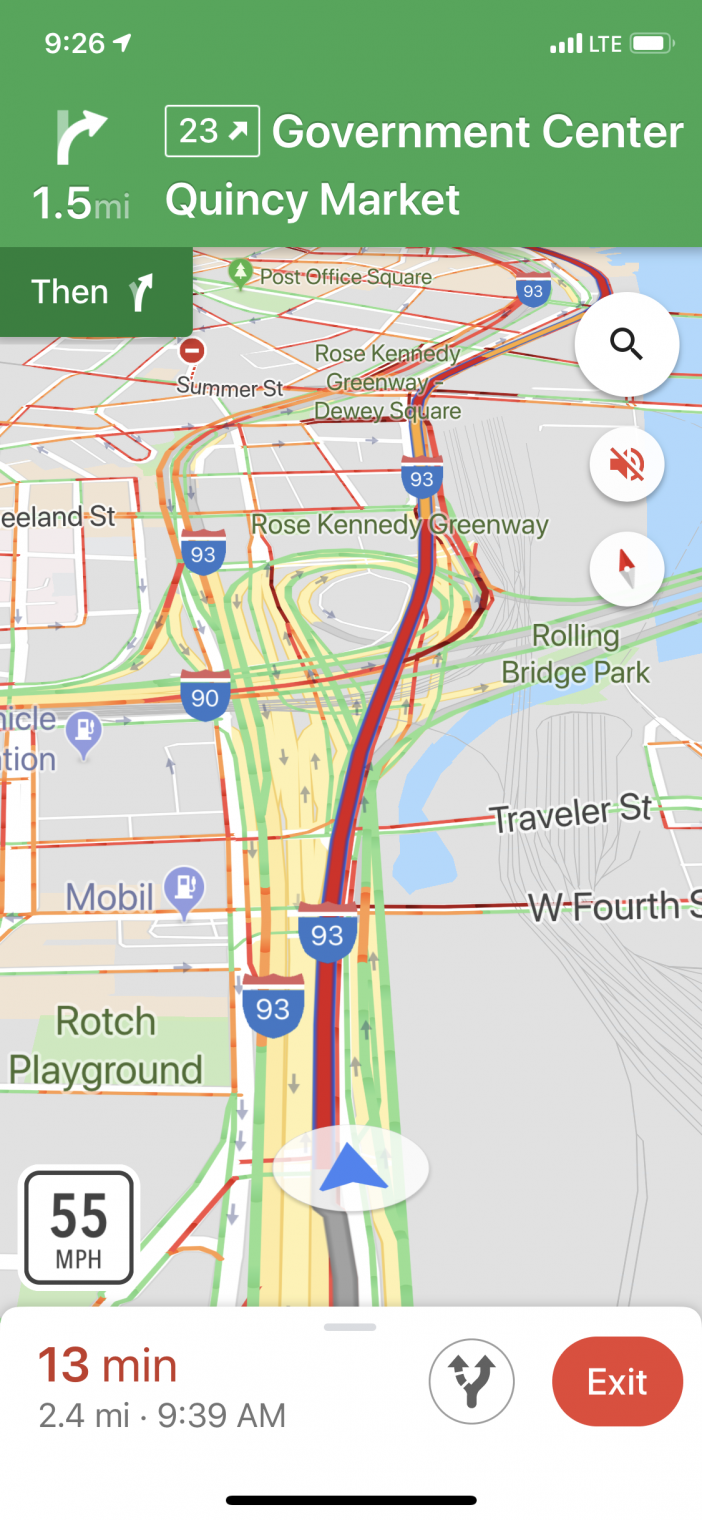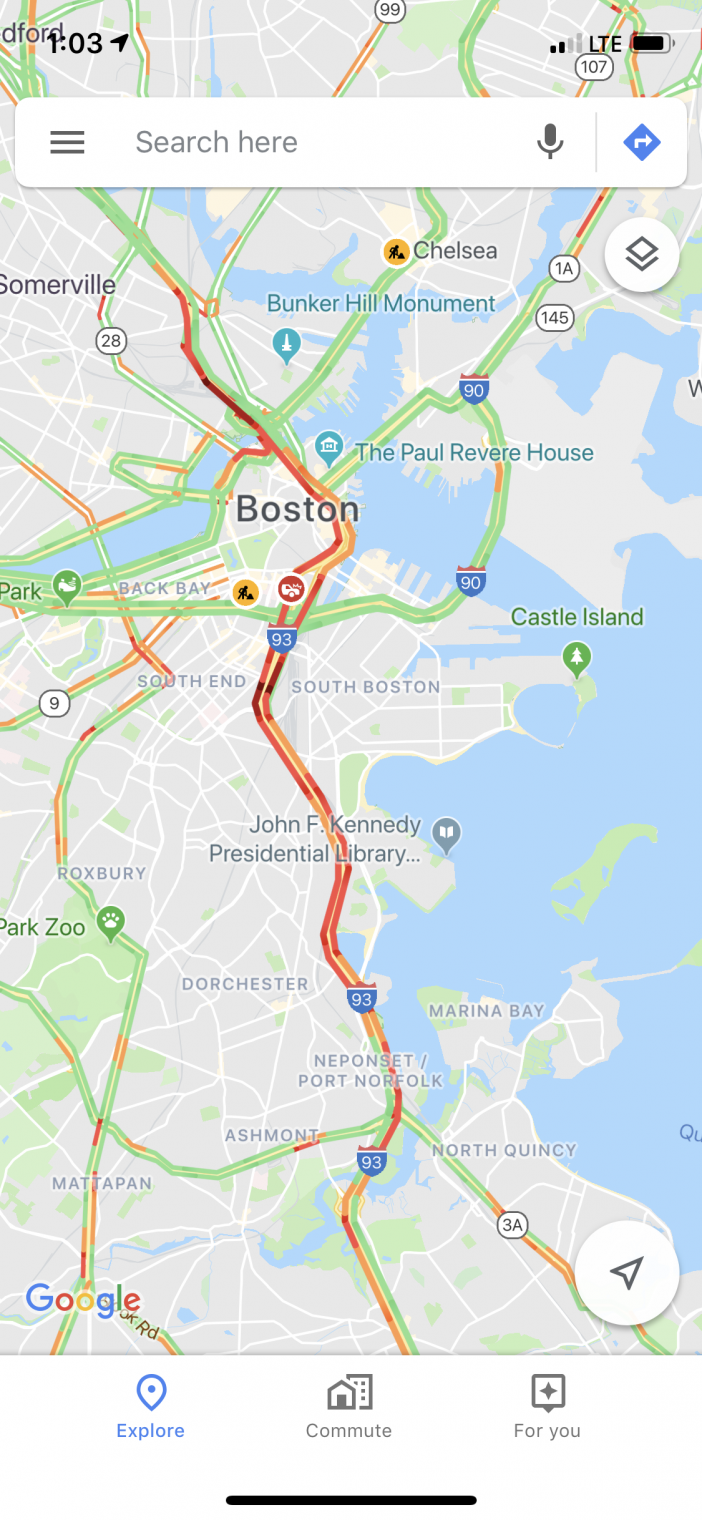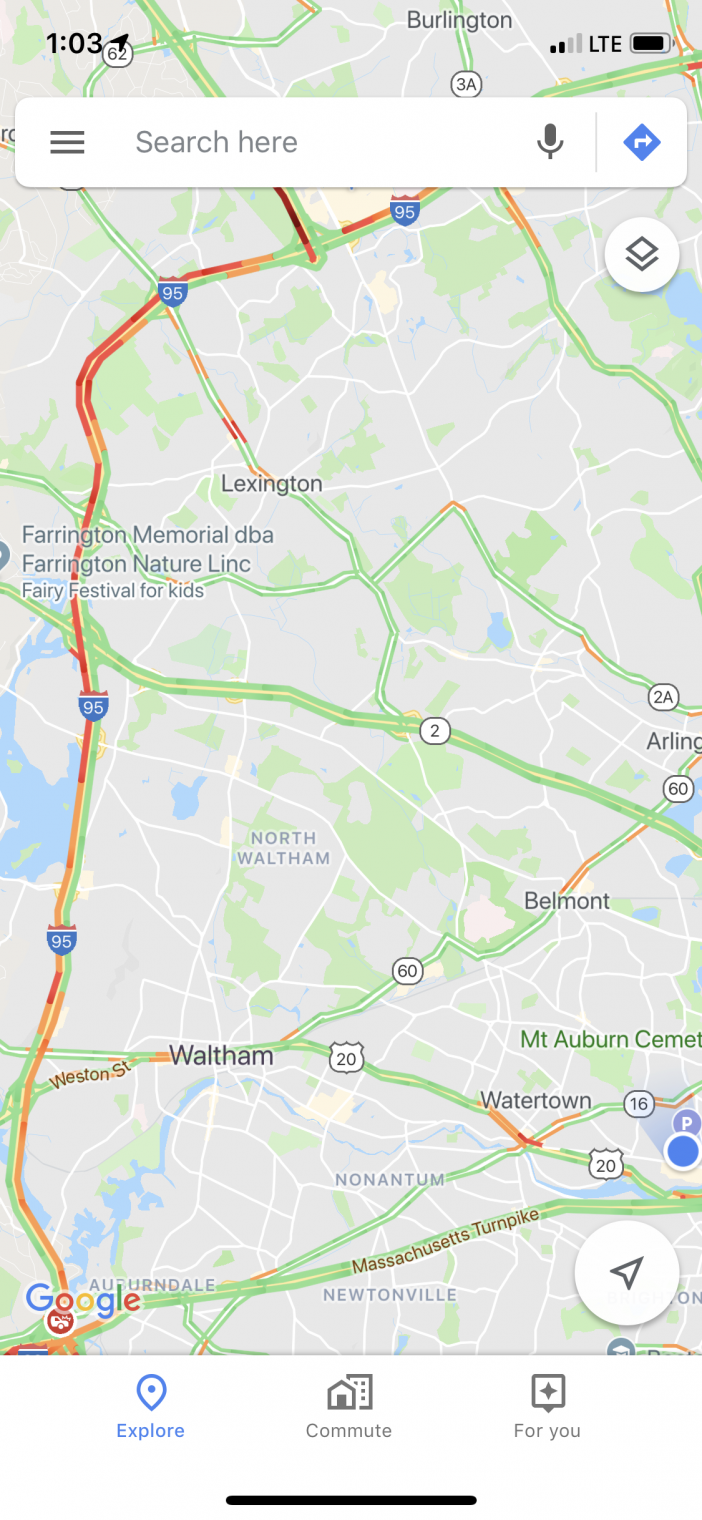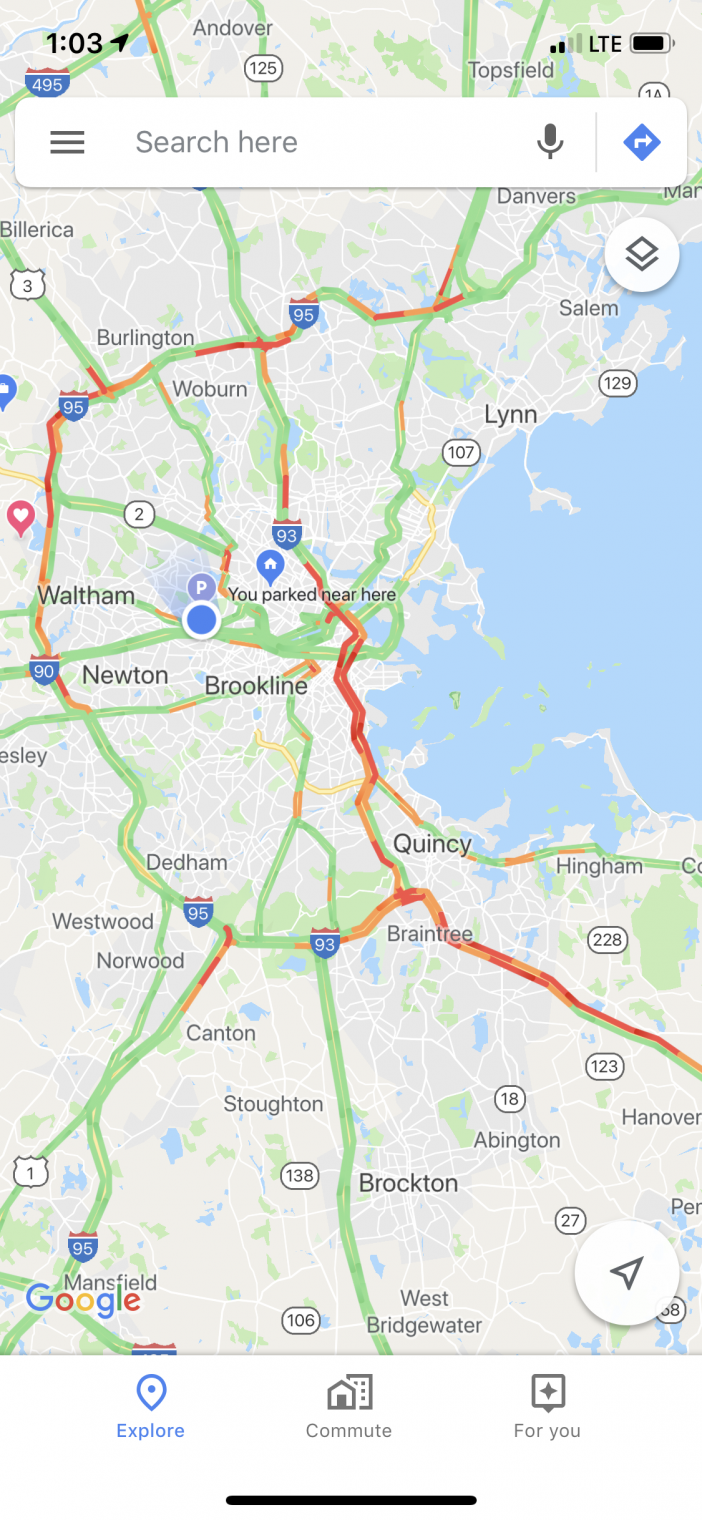Boston traffic, 9:26 on a typical weekday morning, going into the Central Artery, the result of the $15 billion Big Dig:
Bostonians generally say, of the project, “It was expensive, but worth it.” They cite the improved aesthetics of downtown, even if travel times are now actually worse (see “The worst gridlock in the US is right here in Boston,” Boston Globe 2019, for example). I’ve never heard anyone note that we didn’t pay for the project and therefore it is no surprise that we are happy with the result. If the Feds taxed citizens of Indiana and used the money to buy us all Teslas we would certainly say “Even at $120,000 per Tesla X, that was a great value.”
I entered the above traffic jam just as I was coming from a meeting at a charter (public) school. They’re trying to construct a building for about 500 learners. Most of their students are from families on welfare and therefore the proposed location is in one of Boston’s lowest income neighborhoods. Nonetheless, neighborhood groups are opposed to the school, citing concerns over traffic congestion. (Any seed of local opposition gets enormous financial support from the Boston Teacher’s Union, the charter school folks said.)
Separately, here’s the traffic picture from a recent Easter Sunday at lunchtime. I had expected traffic to be lighter than usual, since folks would be settled in with family and carving the ham, but the highways were jammed.
San Francisco edition, from a Facebook friend who works early morning nursing shifts:

Related:
- https://philip.greenspun.com/blog/2006/04/02/personal-solution-to-traffic-jams-motorhome-and-driver/ : “Plenty of rich folks in California, however, do spend more than $100,000 on a car. And during this past week they get onto the highways blocked off by civil unrest and demonstrations against restrictions on illegal immigration. What would be an intelligent way to spend serious $$ on ground transportation? How about a $120,000 diesel-powered 40′ motorhome? It wouldn’t be as much fun to drive as a BMW M5 and it would certainly be difficult to park in the city. You solve both problems by hiring an illegal immigrant to act as your driver. You send him to schoolbus driver school for a few days and let him sleep on the fold-out dinette in the RV at night. Now when you go to the beach, it will still take the same two hours at 5 mph on the clogged freeways that it always took, but you won’t care because you’ll be at home. You can read in an easy chair. You can do some writing at the dinette table or refer to your files. You can make phone calls and take notes. You can watch TV. With a mobile phone data connection, you can use the Internet. You can take a nap in the bedroom in the back. If you get hungry, you can fix yourself a grilled cheese sandwich in the kitchen. You’re at home in your second house, so waiting for friends or traffic jams isn’t anywhere near as annoying as it would be if you were in a car.” (The post from 13 years ago was about Los Angeles, but I think it shows that every social issue that affects California eventually disperses to the rest of the U.S.!)




Makes me glad I chose to stay in Indianapolis, where the commuting is easy.
Interested in your take on congestion pricing *finally* being approved for Manhattan. I’m in favor of it.
As usual, our ancestors had more wisdom on how to manage things. The streets and highways would not be clogged with those infernal contraptions if some sensible regulations were revived.
Time to move Felipe!
https://en.m.wikipedia.org/wiki/Gridlock_(Doctor_Who)
In this episode of Dr Who all they do is commute… Not one of my favourites.
Obama always says if you like your big dig you can keep your big dig!
I think life would be better if we made jobs and pay a partial function their commute distance. Then employers would pay employees a salary but deduct a charge for the length of the employees commute. So for example if you wanted to take a job 30 miles away from your home you would pay a commute penalty of $3000 per month. But if you moved to be less than a mile your commute charge would only be $100…..
Over the past 30 years, six jobs, and six cities, I’ve never lived farther than three miles from my workplace, and as close a three blocks.
Only morning it’s usually okay to commute into Wash DC from suburbs is Friday, especially if ahead of a holiday weekend as somehow Thursday is the new Friday in terms of weekend getaways (maybe from past horror of Friday afternoons leaving DC). Significant proportion of feds and others work 4 days a week, with Friday off (sometimes every-other-Friday off on a common flexible schedule working 9 hours the other 9 days of two-week period). All bets are off Friday afternoon — sometimes worse traffic on Beltway than Mon-Thursday, but occasionally lighter. Unless Americans invest more in public transporation infrastructure, why would traffic calm down if the population is rising, and if gas prices remain low?
In Dallas, we build toll roads which are perfectly maintained, but still clogged up. My wife takes the side street to her job 14 miles away. Either way it’s 45 minutes.
“Modern planners are so concerned about traffic that they have stopped thinking about anything but the fastest movement of cars & the attendant problems, as if the only function of the city is to serve as a racetrack for drivers between petrol pumps & hamburger stands.” — Papanek
“The field must look back in humility to study not what is the latest in Los Angeles or Milano, what is oldest in Boston or Siena.” — Papanek
Separately, here’s the traffic picture from a recent Easter Sunday at lunchtime. I had expected traffic to be lighter than usual, since folks would be settled in with family and carving the ham
Perhaps Easter isn’t a big deal with the current Boston population?
How about if we start using public transportation more often? Shouldn’t that help? Or maybe not [1].
[1] https://nypost.com/2019/05/11/this-is-new-york-citys-most-disgusting-subway-car/
SOme say that (car) infrastructure is a cult: “The American Society of Civil Engineers wrote a report suggesting that over the next decade we spend $2.2 trillion so we can save $1.0 trillion.”
https://www.strongtowns.org/journal/2017/3/12/revisiting-the-asce-infrastructure-cult
https://www.strongtowns.org/journal/2017/3/20/failure-to-act-like-professionals
Motorhome plus driver is essentially what we have here in CA with Gbus / Fbus / Mbus, though Googlers, Fbookers and Microsofties may be missing out on the freshly-prepared food – they have to pick it up from the free cafeteria on their way out the door.
You must be thrilled that the rest of us never got our damned flying cars, or flight maps would also have those red lines. Imagine you pull up on a field of gridlocked aircraft with brake lights on….